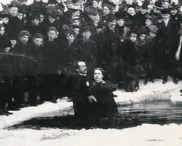By nature, Martin Luther was not a rebel.
The protest that has come to be called the 95 Theses took him along a pathway he never envisioned when he first put pen to paper. What began as a simple critique of the misguided piety of the Roman Church ended in taking Luther and his colleagues at the University of Wittenberg to the remarkable place of forming a new church, or, as Luther would have put it, guiding the church back to its biblical foundations.
The 95 Theses were designed to initiate a theological conversation. They worked far better than their author imagined! And in the year following their publication, Luther was asked to speak about his theological convictions at what has come to be called the Heidelberg Disputation. It bears remembering that when Luther burst onto the stage of history in this debate he had a deep knowledge of Latin literature and was firmly acquainted with both scholastic philosophy and theology, as well as with the writings of the Renaissance humanists of his own day. Most importantly, he was deeply read in the Latin Fathers and had a profound knowledge of the Bible.








